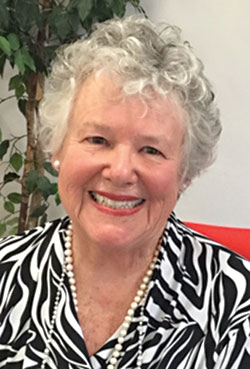
A newcomer to camp, I quickly learned camp traditions were guarded more carefully than a conservative Episcopalian guards his prayer book of 1928. If one thought any camp traditions outrageous, one would be wise to keep such views to oneself.
“Indian” dancing and lore were fine, but when I heard the campers were enthusiastically preparing for its annual “slave market,” I asked for an explanation of exactly what this entailed.
Certain campers, (probably the young or the girls!) would be herded up and sold off to the highest bidders and apparently, they would have to obey their “masters” commands for the day. What? What? Yet I was assured it was all “great fun.”
My face turned the color of the West Virginia sun setting over Goat Mountain. “We cannot have a slave market,” I said.
The group stared at me as if an eel had just arrived at their midst. They did not agree so I registered my displeasure with the owner of the camp. The good man agreed that the event was not only tasteless but downright stupid.
Yet he was just as fearful of terminating a camp tradition as the others. There is something frightening about standing up to the group… yet individual feedback is important to act as a rudder to “group think.”
“Just imagine if news somehow leaked out of our camp that we were holding a slave auction?” I ventured. The director’s eyes clouded.
“TV reporters would come into camp and our slave market could become national news. The director immediately canceled the event.
Only one other time did I go against the group. The camp had a giant turtle, a mascot, that was believed to be 100 years old that lived in the center of camp. Someone got the crazy idea to boil the turtle for soup.
Spoil sport struck again mentioning how traumatic such a deed would be for many campers who loved the turtle. I was proud to save his life.
One day there was the traditional “war” among the four tribes. To the ominous sounds of a huge pounding drum the four chiefs rode bareback on horse into camp, each from a corner of the field. The awaiting tribesmen, all dressed in Native American wear and war paint, cheered them on.
The chiefs dismounted and had angry words, then broke arrows signifying the outbreak of war. I felt both horror and thrill in the air as the tribes cheered for the coming battle.
Ammunition was tiny packets of flour that when thrown at an opposing warrior, immediately made him a prisoner. The battle took place on Monkey Island, which was in the middle of the river and could be entered by walking across a narrow cement walkway that acted as a dam for the river. Victory was the tribe with the most warriors untouched by flour.
The campers loved the annual tribal war and when peace and the winning tribe was finally announced, everyone proclaimed it had been a wonderful day.
One morning I rose early with the horseback riding director and we went to the barn, saddled two horses and went up Goat Mountain. Our daughters’ cabin had camped out on top of the mountain overnight and we wanted to surprise them by riding into camp.
It was the first time for me to ride a horse straight up a mountain. I remember how steep it was and how strong my horse felt against my legs as he charged straight up leaving me hugging his neck and hoping I would not fall off.
Mist lay over the mountain that morning with the early sun peeping through tall trees and as we made our way to their campsite the birds were just starting to sing.
We rode into camp, our horses’ hooves silent against the mossy earth except for the occasional snap of a twig. Liz is hard to surprise and there she was, her head, a mop of red curly hair, poking out of her tent flap and staring at us as if we were an apparition and she was in the grip of a dream — her mother arriving out of the morning mist on horseback?
Soon all the girls were awake and laughing and we dismounted and helped them build a morning fire to cook breakfast.
The camp had its own radio station and campers learned how to be a DJ playing records on the camp station. At quiet hour after lunch each day we could call in to the station and make requests for certain songs to be played dedicated to special friends.
“Afternoon Delight” was a favorite song 50 years ago, along with “I’ll Never Fall in Love Again.”
(Continued next week.)
© 2024


